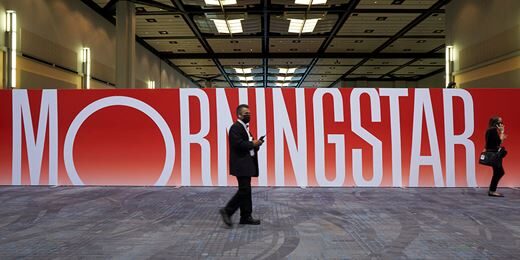Morningstar Sustainalytics Launches its Low Carbon Transition Ratings

Investors can respond to regulatory initiatives and manage material climate-related risks with access to in-depth insights into a company’s preparedness to transition to a low-carbon economy
Morningstar Sustainalytics, a leading global provider of ESG research, ratings, and data, has launched its Low Carbon Transition Ratings. The ratings are designed to provide investors with a forward-looking science-based assessment of a company’s current alignment to a net-zero pathway that limits global warming to 1.5 degrees Celsius. Underpinning the ratings is a holistic evaluation of a company’s strategy and actions toward meeting its net-zero commitments, offering investors a clear and comparable view of a company’s policies, governance practices, and investment plans. Morningstar Sustainalytics currently provides Low Carbon Transition Ratings coverage for approximately 4,000 of the largest public companies and plans to expand to include over 12,500 companies by 2024. With these ratings, investors have information to help identify and manage transition risks, respond to global regulatory requirements and disclosure initiatives, build climate investment strategies, and advance engagement activities.
Preview of Morningstar Sustainalytics’ Low Carbon Transition Ratings Research Findings
Investors are increasingly setting ambitious net-zero strategies, requiring them to have more detailed insights into the climate-related risks and opportunities facing the companies they invest in. While more companies are making net-zero commitments to fulfill global climate goals, Sustainalytics’ early research shows that only 25 percent have strong emissions reduction targets. Further, only 8 percent of companies have strong greenhouse gas (GHG) performance incentive plans, with the utilities and real estate industries leading in this area. Based on Sustainalytics’ assessment of how these companies currently manage their reduction of GHG emissions, the world is expected to warm by 2.9 degrees Celsius, which is well above the target of 1.5 degrees Celsius under the Paris Agreement.
Unique Features of the Low Carbon Transition Ratings
In development for nearly two years and based on investor feedback, Morningstar Sustainalytics’ Low Carbon Transition Ratings were built by an in-house team of climate experts and the creators of its award-winning ESG Risk Ratings. Expressed as an Implied Temperature Rise, the Low Carbon Transition Ratings offer investors a contextual signal that shows a company’s exposure to transition risks and opportunities based on its business model, emissions, and management performance. The innovative ratings are also based on the outcomes of scenario analysis from the PRI-commissioned Inevitable Policy Response (IPR) and include more than 85 management indicators weighted by GHG emissions and grouped by TCFD themes. Investors can also determine the scope and quality of a company’s climate risk disclosure with a TCFD module built into the research.
See related article: Morningstar Sustainalytics Appoints Yayoi Asazuma as New Singapore Director
“As the effects of climate change further materialize, companies are likely to face rising transition costs tied to decarbonizing the global economy,” said Azadeh Sabour, senior vice president of Climate Solutions at Morningstar Sustainalytics. “Investors are becoming more aware of these risks and need a structured way to decipher corporate transition plans to determine whether companies are prepared to deliver the required business model transformation to transition to a low carbon economy. Leveraging the consistent framework behind our Low Carbon Transition Ratings, investors can benefit from a distinct signal to understand the most material aspects of a company’s transition plans and how they compare across industries and geographies.”
Methodology Leverages the PRI-Commissioned IPR 1.5 degrees Celsius Required Policy Scenario
Investor clients have access to Morningstar Sustainalytics’ comprehensive and transparent methodology, which includes its model assumptions and indicator assessment criteria across a company’s value chain. The Required Policy Scenario (1.5 degrees Celsius RPS) from the IPR used in the methodology shows the ambitious policies and actions needed to keep global warming below 1.5 degrees Celsius beyond the current stated policies. The RPS is based on the International Energy Association’s Net-Zero scenario, which covers a broad range of sectors and is based on assumptions about technological advances and land use change. Morningstar Sustainalytics downscales and reconciles the 1.5 degrees Celsius RPS to a company-specific net-zero budget that considers the location of a company’s operations and business activities.
“Transition-related risks for companies can result in increased costs due to shifting technologies, financial risks due to policy changes, and reduced access to capital,” said Julian Poulter, head of investor relations at the Inevitable Policy Response. “With these risks becoming more imperative to understand, investors require a science-based assessment to determine the impact on their portfolios. IPR is delighted that Morningstar Sustainalytics has selected our scenario analysis for use in their Low Carbon Transition Ratings. We look forward to working together more closely as investors embrace these new signals to make more informed investment decisions.”
Morningstar Indexes to Introduce a New Suite of Global Climate Indexes
Later this year, Morningstar Indexes will introduce a new suite of global climate indexes underpinned by the Low Carbon Transition Ratings of Morningstar Sustainalytics. Designed for investors who aim to track the Net Zero trajectory of their portfolios, the indexes will provide exposure to companies committed to delivering business model transformation and managing climate transition risks.












